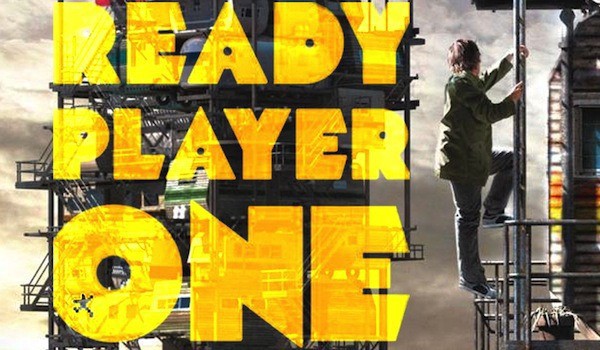(This is a repost from my Medium blog which you can find here)
Ready Player One has not had a good marketing campaign thus far. To say it’s been rocky might be downplaying it a bit.
Based off the Ernest Cline novel of the same title, Ready Player One is a movie set in the not too distant, dystopian future about a teenage boy who becomes obsessed with solving an elaborate puzzle within the OASIS, a hyper-real virtual reality simulation, where the eventual winner wins a crapload of money.
It’s not a terrible premise, and considering that the book wasn’t exactly the Great Gatsby of its era, it really didn’t have a high benchmark for expectations. Helmed by Steven Spielberg, it could still very well become a great movie, it’s just…..well, the movie is already on the cusp of a box office implosion due to its shaky trailer, social media backlash, and poor marketing efforts.
Let’s examine, starting with the problematic trailer:
The trailer is chalk-full of what some people might consider “Easter Eggs”-an intentional message, joke, or nod to fans who may get a reference to earlier work.
Except, when executed poorly, Easter Eggs can creep into another territory altogether.
It’s a concept called “Intertextuality”, which was masterfully covered by the Nerdwriter over on YouTube.
He defines intertextuality as “something in a movie that is shaped by another text, usually another movie, or book, or play”. Basically, it’s a cultural reference to something outside of the movie. He goes on to argue that films are increasingly using intertextual references as a substitute for emotion or solid storytelling.
Because intertextuality isn’t a bad thing in itself, but when incorrectly used, or in the case of this trailer, overused, it can leave audiences feeling dull, flat, and worst of all….bored.
If at any point during this trailer you said to yourself, “Hey, I know that thing” then you just experienced weaponized intertextuality.
How Ready Player One abuses its intertextual ancestry
Yes, I’ve read the book, and I realize that the book is also structured around its sentimentality ridden narrative, possibly subverting the hero’s expectations as it relates to his obsession with video game culture and nostalgia.
But that doesn’t excuse the marketing teams behind Ready Player One for absolutely going HAM on their audiences expectations of intertextuality. Instead of going for something more subtle, they simply photoshopped old, classic movie posters and substituted the stars of Ready Player One on top of it like it was some sort of crying Jordan meme.
How to conjure up nostalgia the right way
I can think of two specific examples of intertextuality working the way it should be. The first most obvious choice, is Stranger Things. The genius about Stranger Things is that while it relies pretty heavily on 80’s references, it doesn’t use it as a substitute for story. At it’s heart, Stranger Things is really about a group of kids trying to find their way through adolescence, against the backdrop of an interdimensional threat that threatens their way of life. That story isn’t about the 80’s. The 80’s are merely the supporting character.
The 80’s weren’t that bad kids
Another great example is one of my favorite comic book movies of all time, Logan.
Comic books aren’t real kids
In Logan, there are definitely references to the comic books, and previous X-men movies. But the story isn’t bogged down by these references, and most importantly, the director James Mangold intentionally didn’t want to go down the path of creating just another superhero movie.
That’s because most superhero movies are guilty of weaponized intertextuality. How many times has a friend leaned over to you in the theater and said “Ooh, a character I know from the comic books!” or “ooh, I bet that’s an easter egg for the next movie!”
Constant character references from obscure comic book issues and movies that serve as an appetizer for bigger, better movies, don’t really make a good movie in itself, do they?
All this is to say that in the modern age of filmmaking and marketing, we need to be smarter about how to connect with and resonate with audiences. People love being reminded about their past, but in a way that’s not shoved in their face, and right on the nose. Because just like advertising, people do not fall in love with products, references, or easter eggs, they fall in love with a feeling.




